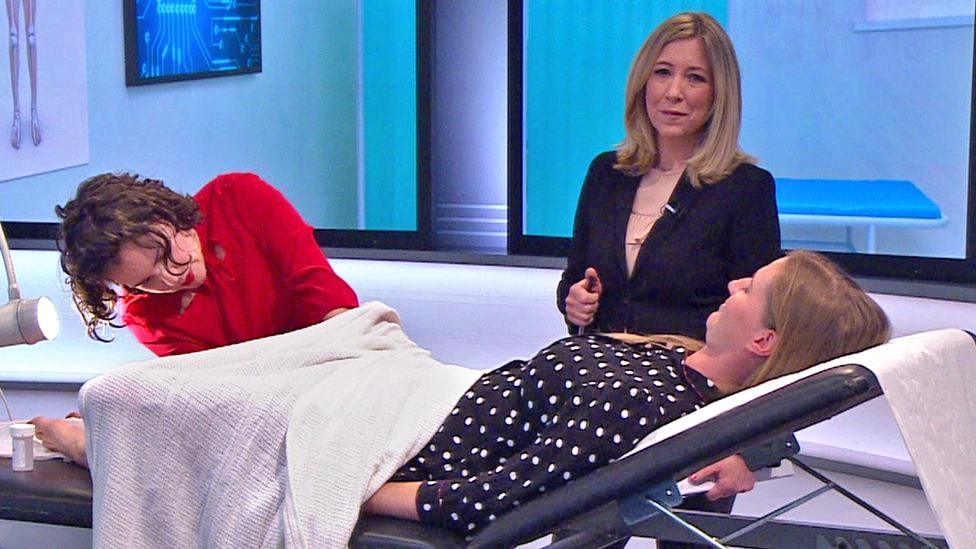Coronation Street viewers 'heartbroken' over cervical cancer storyline
- Published
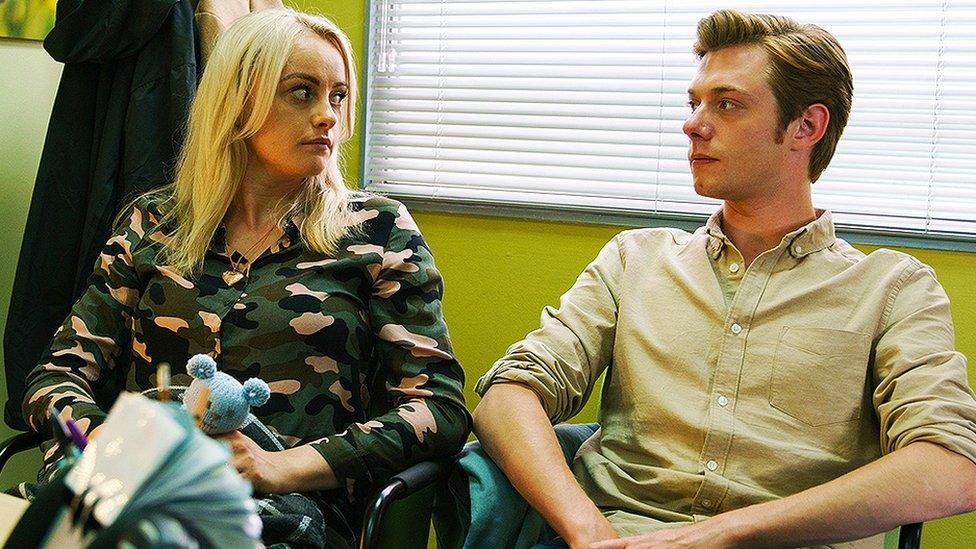
Coronation Street viewers were faced with emotional scenes this week when Sinead Tinker was given months to live after a cancer diagnosis.
The character, played by Katie McGlynn, had previously been given the all-clear after having chemotherapy.
But this week Sinead, on-screen husband Daniel - and viewers - found it had returned, leaving her with only a few months to live.
"My heart is breaking for Daniel & Sinead," Katie wrote on Twitter., external
She added she was "proud" to be shining a light on cervical cancer and that the Coronation Street cast and crew had "poured everything" into the storyline.
In the soap, Katie's character, Sinead, 25, and her husband Daniel, 24, have a baby son, Bertie, who was born in January.
Viewers wrote on Twitter that the storyline was "terrifying" and "heartbreaking".
Allow X content?
This article contains content provided by X. We ask for your permission before anything is loaded, as they may be using cookies and other technologies. You may want to read X’s cookie policy, external and privacy policy, external before accepting. To view this content choose ‘accept and continue’.

Allow X content?
This article contains content provided by X. We ask for your permission before anything is loaded, as they may be using cookies and other technologies. You may want to read X’s cookie policy, external and privacy policy, external before accepting. To view this content choose ‘accept and continue’.

Allow X content?
This article contains content provided by X. We ask for your permission before anything is loaded, as they may be using cookies and other technologies. You may want to read X’s cookie policy, external and privacy policy, external before accepting. To view this content choose ‘accept and continue’.

Earlier this week, Katie said in an interview with This Morning, external that she had pushed for her character to die from from her illness, to show the realities of cancer.
"That's real life. Life isn't a fairy tale and these women are dying," she said.
"So many people are affected by cancer and this storyline triggers so many emotions for so many people because it's absolutely heartbreaking, so many people are dying of cancer every day."
Cervical cancer: What are the stats?
There are around 3,200 new cases of cervical cancer every year in the UK, according to Cancer Research UK, external. That works out to an average of nine new diagnosis every day.
And while cervical cancer rates declined by around a quarter since the 1990s, they have gone back up by 4% over the last decade. It's now the 14th most common cancer in women.
It's more common among white females and those living in deprived areas, and according to statistics from the World Health Organisation, external - 90% of deaths from cervical cancer in 2018 occurred in low and middle-income countries.
But research suggests that 99.8% cases of cervical cancer in the UK are preventable.
How can you reduce your risk?
Earlier this month, YouTuber Zoella posted a 43 minute livestream of her undergoing a cervical smear - the test that health checks your cervix.
That's the procedure all women aged over 25 are advised to take every three years to check the health of their cervix.
Allow YouTube content?
This article contains content provided by Google YouTube. We ask for your permission before anything is loaded, as they may be using cookies and other technologies. You may want to read Google’s cookie policy, external and privacy policy, external before accepting. To view this content choose ‘accept and continue’.
And it's doing this regularly that can detect cervical cancer in its early stages.
Girls aged between 12 and 13 can receive the HPV vaccine to reduce their risk of cervical cancer on the NHS. It's available to them for free until they reach 18.
From September 2019, the vaccine is also being offered to boys aged 12 to 13.
The HPV vaccine also reduces the risk of mouth and throat cancer, cancers of the anal and genital areas - as well as protecting against genital warts.
But the vaccine does not negate the need for regular cervical smears.
Visit the NHS website for more information on cervical cancer and smear tests., external


Follow Newsbeat on Instagram, external, Facebook, external, Twitter, external and YouTube, external.
Listen to Newsbeat live at 12:45 and 17:45 weekdays - or listen back here.
- Published5 March 2019

- Published22 August 2019
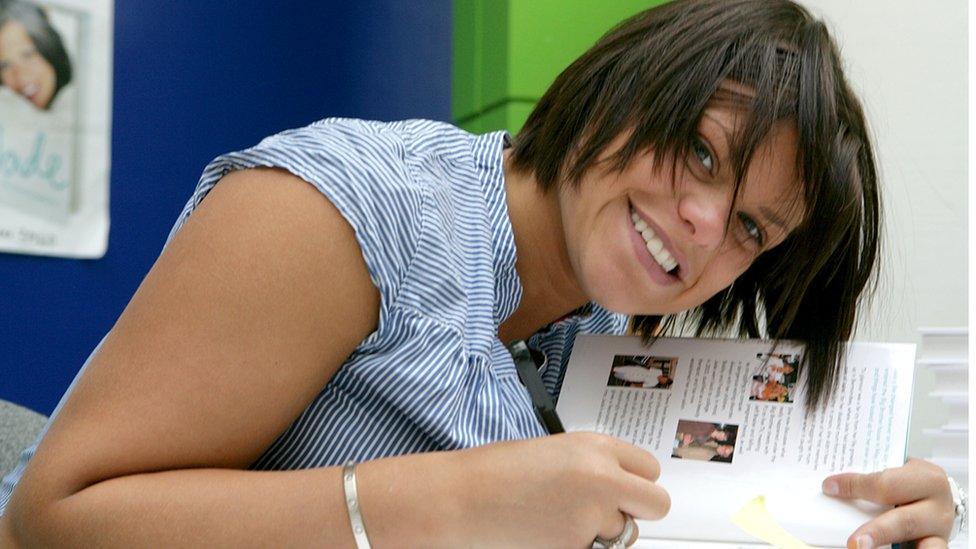
- Published4 March 2019
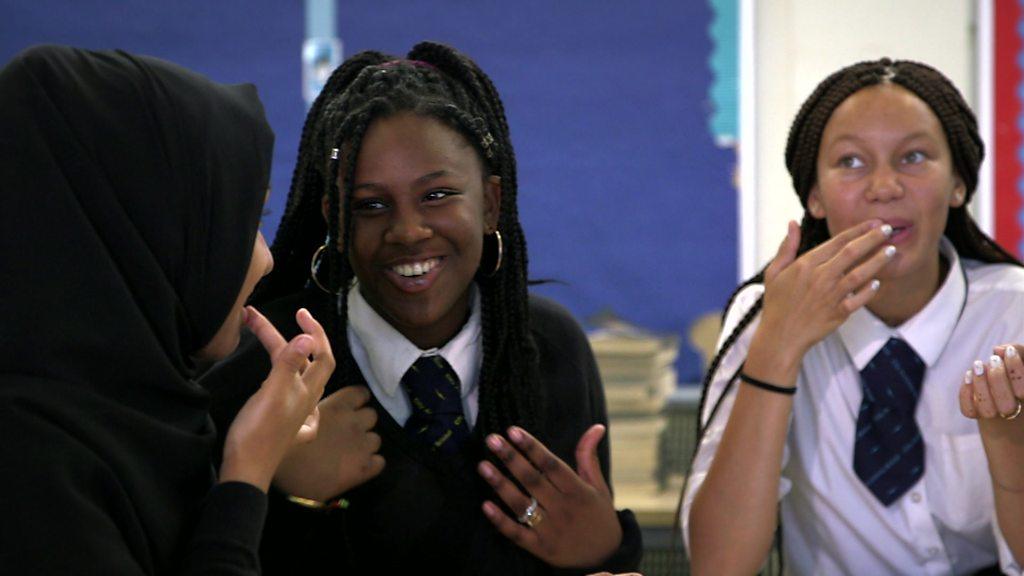
- Published22 January 2018
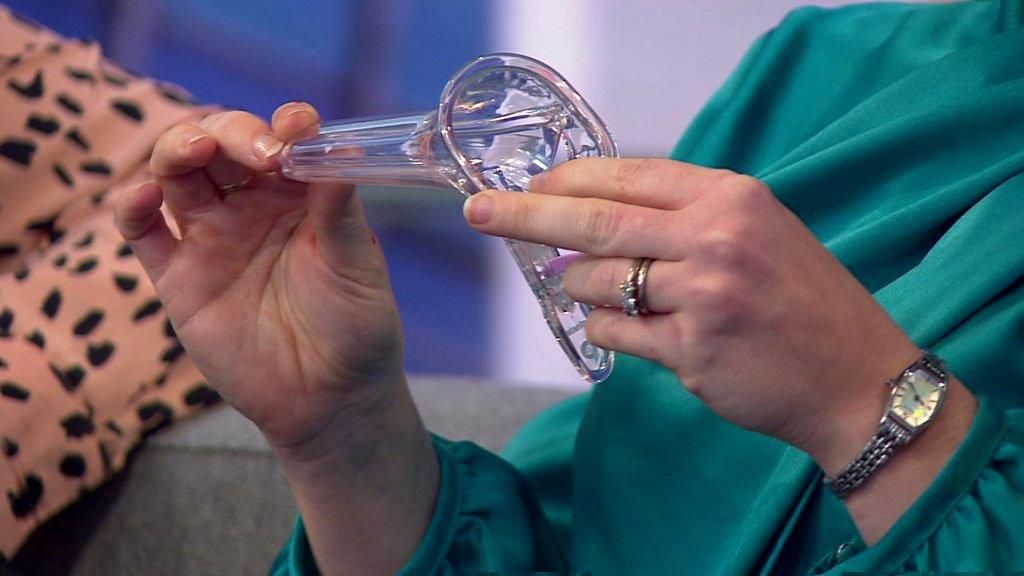
- Published25 January 2019
